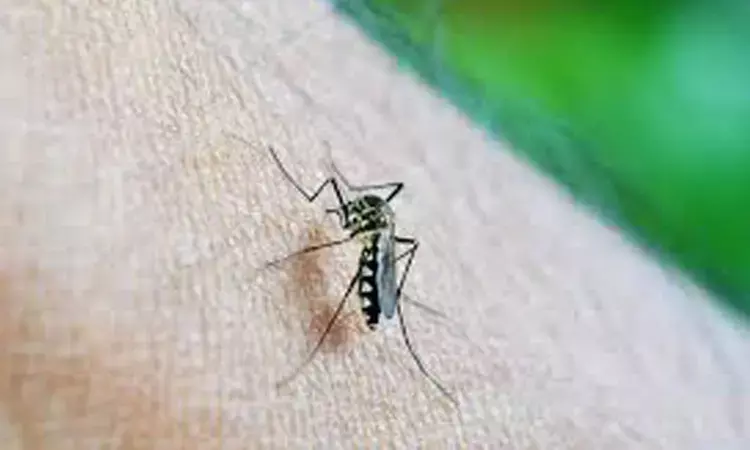- Home
- Medical news & Guidelines
- Anesthesiology
- Cardiology and CTVS
- Critical Care
- Dentistry
- Dermatology
- Diabetes and Endocrinology
- ENT
- Gastroenterology
- Medicine
- Nephrology
- Neurology
- Obstretics-Gynaecology
- Oncology
- Ophthalmology
- Orthopaedics
- Pediatrics-Neonatology
- Psychiatry
- Pulmonology
- Radiology
- Surgery
- Urology
- Laboratory Medicine
- Diet
- Nursing
- Paramedical
- Physiotherapy
- Health news
- Fact Check
- Bone Health Fact Check
- Brain Health Fact Check
- Cancer Related Fact Check
- Child Care Fact Check
- Dental and oral health fact check
- Diabetes and metabolic health fact check
- Diet and Nutrition Fact Check
- Eye and ENT Care Fact Check
- Fitness fact check
- Gut health fact check
- Heart health fact check
- Kidney health fact check
- Medical education fact check
- Men's health fact check
- Respiratory fact check
- Skin and hair care fact check
- Vaccine and Immunization fact check
- Women's health fact check
- AYUSH
- State News
- Andaman and Nicobar Islands
- Andhra Pradesh
- Arunachal Pradesh
- Assam
- Bihar
- Chandigarh
- Chattisgarh
- Dadra and Nagar Haveli
- Daman and Diu
- Delhi
- Goa
- Gujarat
- Haryana
- Himachal Pradesh
- Jammu & Kashmir
- Jharkhand
- Karnataka
- Kerala
- Ladakh
- Lakshadweep
- Madhya Pradesh
- Maharashtra
- Manipur
- Meghalaya
- Mizoram
- Nagaland
- Odisha
- Puducherry
- Punjab
- Rajasthan
- Sikkim
- Tamil Nadu
- Telangana
- Tripura
- Uttar Pradesh
- Uttrakhand
- West Bengal
- Medical Education
- Industry
Multiple mosquito blood meals accelerate malaria transmission potential

Multiple bouts of blood feeding by mosquitoes shorten the incubation period for malaria parasites and increase malaria transmission potential, according to a study published December 31 in the open-access journal PLOS Pathogens by Lauren Childs of Virginia Tech, Flaminia Catteruccia of the Harvard T.H. Chan School of Public Health, and colleagues. Given that mosquitoes feed on blood multiple times in natural settings, the results suggest that malaria elimination may be substantially more challenging than suggested by previous experiments, which typically involve a single blood meal.
Malaria remains a devastating disease for tropical and subtropical regions, accounting for an estimated 405,000 deaths and 228 million cases in 2018. In natural settings, the female Anopheles gambiae mosquito -- the major malaria vector -- feeds on blood multiple times in her lifespan. Such complex behavior is regularly overlooked when mosquitoes are experimentally infected with malaria parasites, limiting our ability to accurately describe potential effects on transmission. In the new study, the researchers examine how additional blood feeding affects the development and transmission potential of Plasmodium falciparum malaria parasites in An. gambiae females.
"We wanted to capture the fact that, in endemic regions, malaria-transmitting mosquitoes are feeding on blood roughly every 2-3 days", says W. Robert Shaw, a lead author of this study. "Our study shows that this natural behavior strongly promotes the transmission potential of malaria parasites, in previously unappreciated ways".
The results show that an additional blood feed three days after infection with P. falciparumaccelerates the growth of the malaria parasite, thereby shortening the incubation period required before transmission to humans can occur. Incorporating these data into a mathematical model across sub-Saharan Africa reveals that malaria transmission potential is likely higher than previously thought, making disease elimination more difficult. In addition, parasite growth is accelerated in genetically modified mosquitoes with reduced reproductive capacity, suggesting that control strategies using this approach, with the aim of suppressing Anopheles populations, may inadvertently favor malaria transmission. The data also suggest that parasites can be transmitted by younger mosquitoes, which are less susceptible to insecticide killing, with negative implications for the success of insecticide-based strategies. Taken together, the results suggest that younger mosquitoes and those with reduced reproductive ability may provide a larger contribution to infection than previously thought.
According to the authors, the findings have important implications for accurately understanding malaria transmission potential and estimating the true impact of current and future mosquito control measures.
https://journals.plos.org/plospathogens/article?id=10.1371/journal.ppat.1009131
Hina Zahid Joined Medical Dialogue in 2017 with a passion to work as a Reporter. She coordinates with various national and international journals and association and covers all the stories related to Medical guidelines, Medical Journals, rare medical surgeries as well as all the updates in the medical field. Email: editorial@medicaldialogues.in. Contact no. 011-43720751
Dr Kamal Kant Kohli-MBBS, DTCD- a chest specialist with more than 30 years of practice and a flair for writing clinical articles, Dr Kamal Kant Kohli joined Medical Dialogues as a Chief Editor of Medical News. Besides writing articles, as an editor, he proofreads and verifies all the medical content published on Medical Dialogues including those coming from journals, studies,medical conferences,guidelines etc. Email: drkohli@medicaldialogues.in. Contact no. 011-43720751


